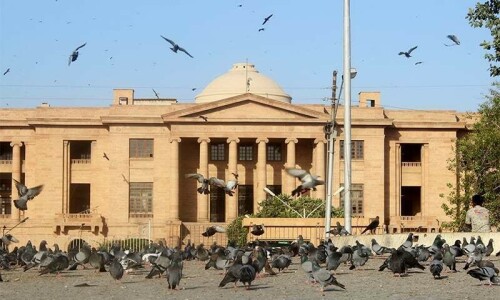EVERY day is a terrible day for women everywhere in the world. I’m loath to rank crimes from most horrendous to least because there’s no such thing, so I’m writing about some especially horrific stories in no particular order. Although I have been covering gruesome acts against women for at least two decades and consider myself desensitised, I was stunned by the following.
Dominique Pelicot is on trial in France for the mass rape of his wife, the 72-year-old Gisele, whom he drugged; he enlisted 80 men to rape her in her own bed for a decade. Gisele only found out about these unimaginable crimes when her husband was arrested for inappropriate filming of young girls and police confiscated his computer. There he had kept meticulous records of the repeated sexual abuse of his wife, which he organised and filmed. Police say it is not possible the men did not know she was unconscious. One man charged with the crime told police he thought she was asleep and it was “part of the play”.
Dominique has admitted to drugging his wife with sleeping pills before inviting men he met on an online platform to abuse her. “I put her to sleep, I offered her, and I filmed,” he told the police when he was arrested, according to French media.
I salute Gisele for her bravery in waiving her right to anonymity, attending the trial which she asked be made public and sitting through the images and videos.
Women journalists are especially vulnerable.
Dominique and 18 men are in custody while 32 are attending the trial as free men while one man, who remains at large, will be judged in absentia. He and the 50 men could face up to 20 years in prison if found guilty. Thirty men, however, are still at large.
Gisele told the court she was worried she had Alzheimer’s because her memory and concentration were poor. The toughest part was telling her adult children what their father had done. Their daughter, who published And I Stopped Calling You Dad in French in 2022, described him as “one of the worst sexual criminals in the last 20 years”.
Gisele has been hailed for her calm demeanour during the trial but she was quoted in the BBC as saying her face “masked a field of devastation”. The Guardian reported her saying “I no longer have an identity … I don’t know if I’ll ever rebuild myself.”
While Gisele has the support of her children and European social services, what can we expect for the woman scrap collector in Madhya Pradesh who was raped on a busy street last week as bystanders watched and filmed the incident. It was uploaded on social media and went viral. A man has been arrested for luring the woman and plying her with alcohol before raping her in broad daylight. He has admitted to the crime. Police say they are looking for those who filmed the incident.
Her case will not get the attention it deserves perhaps because Indian media is numb or this woman’s rape did not receive the outrage the rape of the trainee doctor in Kolkata did. It is a reminder of the challenges India faces with high rape cases and low conviction rates — 27 per cent between 2018 to 2022 according to official figures.
A criminal lawyer told Reuters rapists still think they can get away with the crime.
We’ve made getting away with crimes an art form in Pakistan.
You can say the most odious of things about women — on TV (dramas and news), in parliament or political rallies — and not face serious consequences. Women journalists are especially vulnerable. We saw it on Sunday when KP’s Chief Minister Ali Gandapur launched into a diatribe against women journalists using highly objectionable language. Reporters at this rally said they felt the crowd’s hostility turn towards them. This is so dangerous as increasingly people are being whipped into a frenzy and turn violent. Who would be held responsible if women journalists were attacked that night?
At the time of writing Gandapur had not apologised for those comments and after condoning them, Imran Khan told journalists in prison that Gandapur went too far. But it is because journalists protested. This is what we need to see more of: collective action like refusing to cover events where women are targeted. There must be consequences for dragging women down.
Earlier this year the World Health Organisation published a report showing that “globally about one in three … women worldwide have been subjected to either physical and/or sexual intimate partner violence or sexual violence by a non-partner in their lifetime.” It is a major public health problem.
I don’t know how policymakers can redress this issue but I know our attitudes — especially certain politicians’ — need a major rehaul.
The writer is a journalism instructor.
X: @LedeingLady
Published in Dawn, September 15th, 2024












































Dear visitor, the comments section is undergoing an overhaul and will return soon.